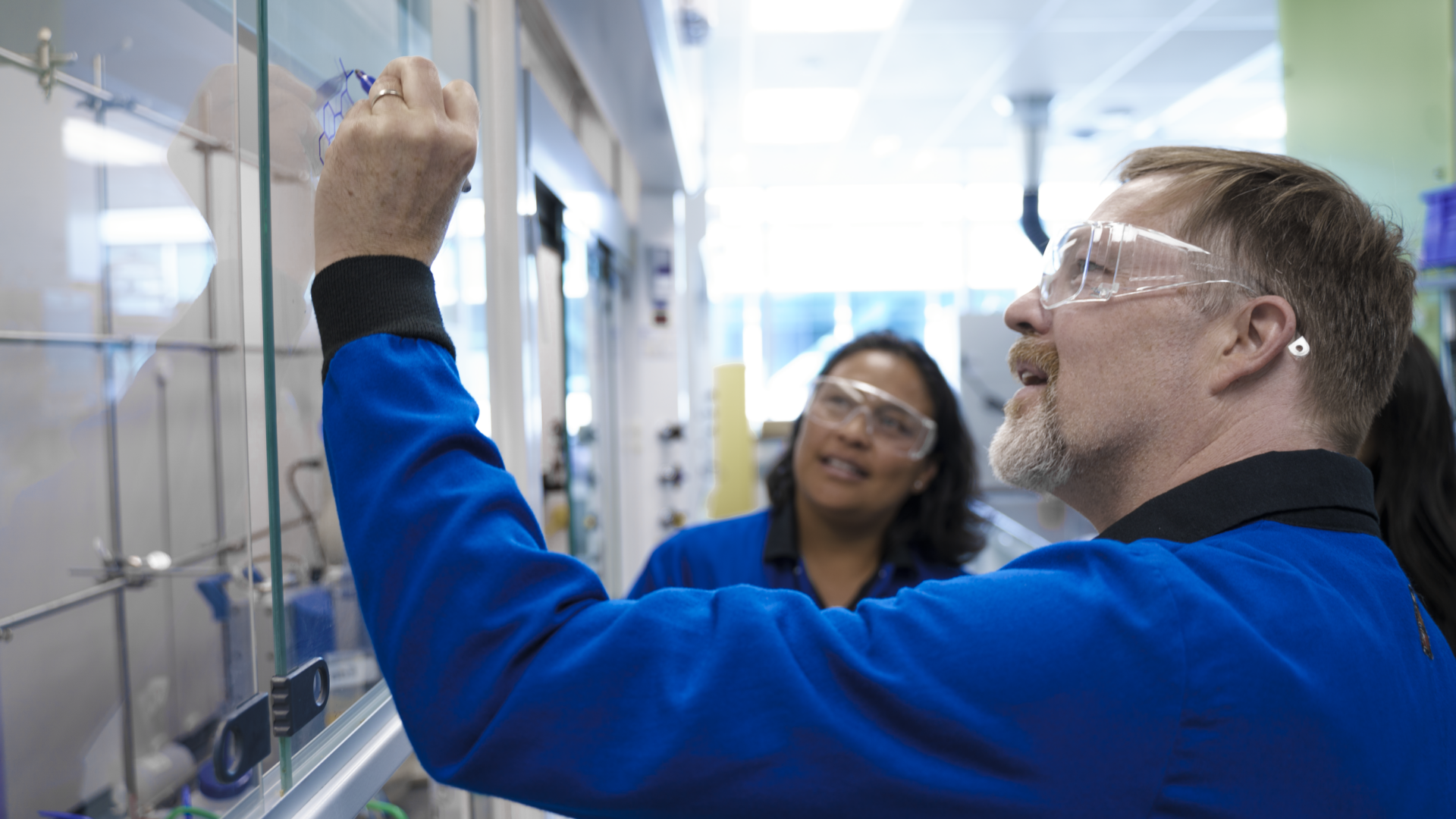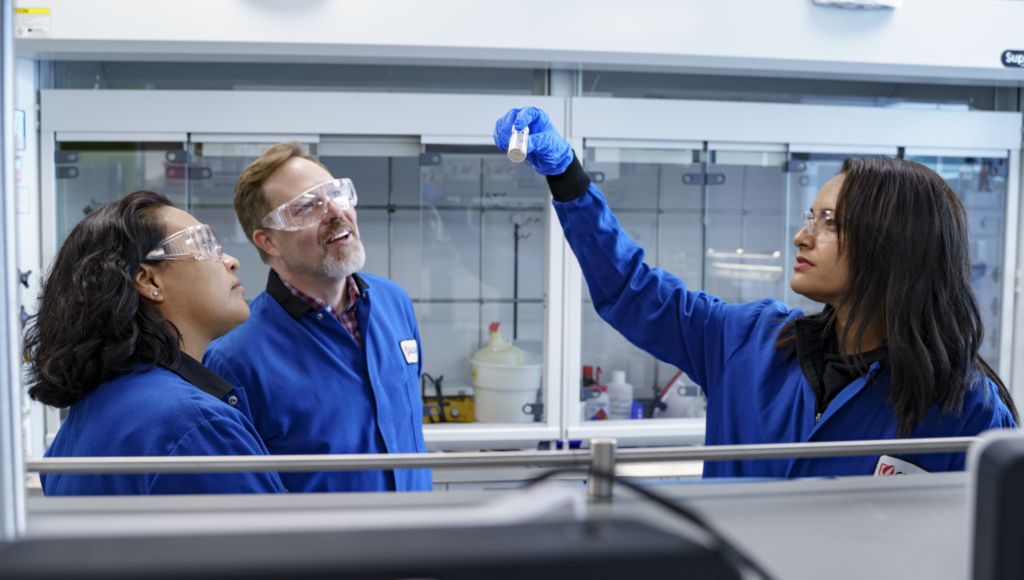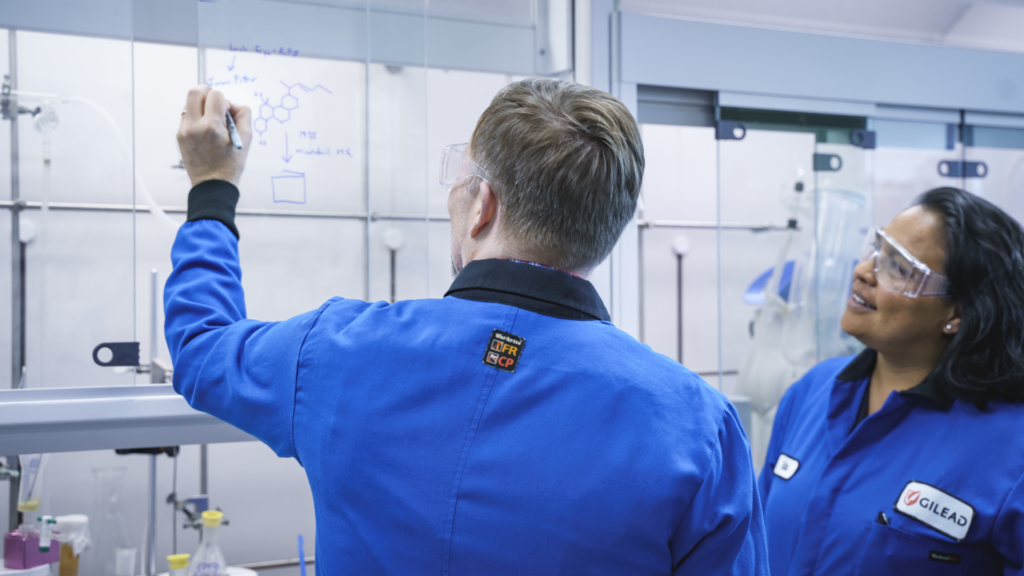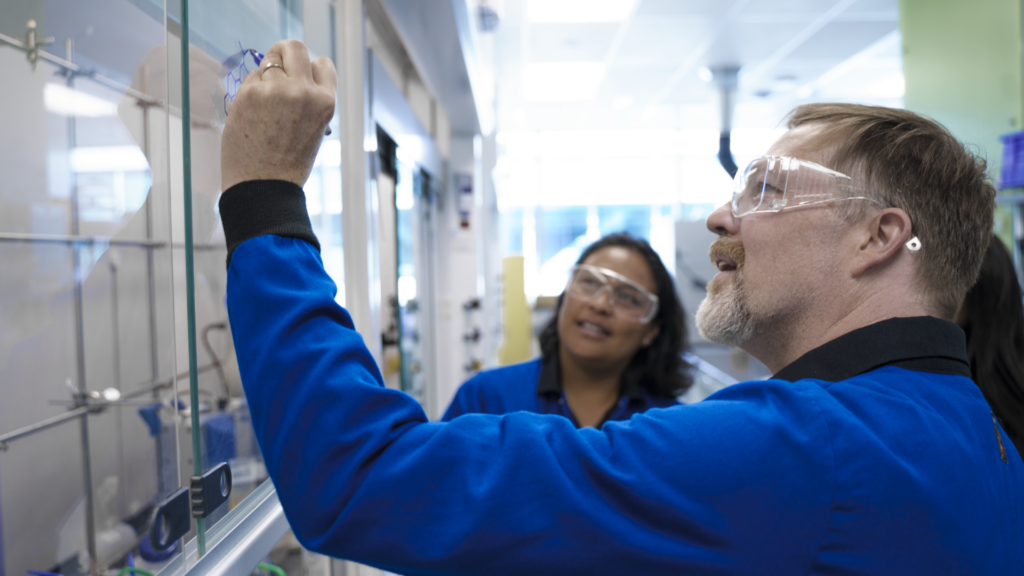Gilead Sciences’ Mark Dresser’s youth inspired his inclusive approach at work
In partnership with myGwork.

myGwork sat down with Mark Dresser, Senior Vice President at Gilead Sciences, to talk about his journey from smashing career barriers to driving change within the workplace and beyond it.
Mark’s story begins as an adolescent in the Carolinas during the emergence of HIV/Aids, where he knew from an early age that he was gay. Coming of age in North Carolina, represented at that time by conservative U.S. Senator Jesse Helms (who proposed federal budget amendments to ban HIV/Aids prevention efforts that would “promote or encourage […] homosexuality”), Mark describes how difficult this made his formative years.
“In preparation [for this interview], I actually went back and found some of the quotes I heard from Helms growing up,” Mark says, explaining the impact it had on him. It remains an emotional topic to this day. The consequence? Mark says he grew up feeling shame, which later led him to conceal his true identity for part of his career. As a teenager, Mark worried his family would reject him, due to the culture of shame that Helms and others espoused.
But this experience also shaped his worldview to inspire inclusive change. Mark tells me that the one thing he’s learned since is that it is important to stop living with shame and fear, and to instead live with purpose, confidence, and strength. “It has also taught me the importance of taking action wherever we are in the world. Whatever place we find ourselves in, wherever we’re employed, whatever community we’re in. We all have opportunities based on our values and beliefs. Advocate for change in a way that’s respectful.”

When Mark was 18 and away at college, his parents discovered that he was gay. When he returned home a few months later, they sat down with him to discuss his identity. Despite earlier, unfounded fears, Mark’s parents told him they loved him and supported him unconditionally. This was a pivotal moment for his future: Mark wasn’t going to let shame or fear rule his life any longer.
Inspired by his teachers to study chemistry and mathematics in college, Mark pursued a career that he describes as “one of the greatest loves and passions of [his] life.” The sciences, in his opinion, enable us to ask questions about the world; to evolve and to change. Through a strong support network – something Mark attributes as a necessity for anyone, especially marginalized communities – Mark now leads a team of over 140 scientists, in an environment that he sees as his responsibility to make as welcoming and supportive as possible. “[A strong network of mentors is] something I have now, and it’s something that I also significantly try to give back. I mentor quite a few young people both within my company and outside my company,” Mark says, as he stresses the importance of enabling others to achieve their full potential.
This is not to say that there haven’t been barriers for Mark along his career path in the sciences. “There was a complete lack of role models. One of the reasons why I made a decision [to study for a PhD in San Francisco] was not only because it was one of the best medical schools in the world, but also because it being San Francisco I had believed there would be out professors in the sciences. In the five years I was there, between 1995 to 2000, there wasn’t one.” Another barrier was the need to keep coming out professionally, constantly. While it feels like second nature to Mark now, and he admits that it was an exhausting, and often awkward, process in his earlier career and can remain daunting for LGBTQ+ people beginning professional careers today.

A key barrier that Mark stresses is the lack of substantive data to confirm what many LGBTQ+ professionals already know. “People don’t believe us, policies don’t change, and what we need is hard data to validate the personal experiences that I and many other members of our community have experienced.” He points to a landmark paper published by Dr. Erin Cech and her colleauges at the University of Michigan in 2021 in the journal Science Advances, which surveyed over 25,000 STEM professionals: unsurprisingly, LGBTQ+ staff were more likely to have experienced career limitations, harassment, and professional devaluation. Ultimately, they are more likely to leave STEM careers than non-LGBTQ+ people.
This is why Mark feels so strongly about professional representation and role models in the workplace. He shares how he was in the closet professionally for some time, and how it’s up to each of us to decide where and when we are comfortable with coming out. But LGBTQ+ people who decide to be out at work – particularly those in leadership positions – can provide great support and mentorship for others who are on the same career journey. Mark works with a number of STEM organizations in leadership roles – for example, as President of the American Society for Clinical Pharmacology and Therapeutics (ASCPT) – and is often the only, or the first, openly LGBTQ+ professional in those spaces. For Mark, being able to come out in his position is a vital step to represent and encourage others in the workplace to picture themselves in similar positions in the future.

Anecdotally, he tells me about a conversation he had with an early career scientist from a minoritized community at another biotech company, who expressed that often they feel as though they are the only person like themselves in the department. However, they said that being able to see marginalized people overcome barriers and succeed against the odds, gives them confidence to achieve the same, if that is what they want to do. “I care about giving hope and inspiration to younger people,” Mark says. “I want to make sure that we’re doing the best that we can for patients, and one way to do that is by ensuring that we have the best voices around the table.”
Gilead’s commitment to having these voices around the table is what attracted him to the company in the first place. With over 16,000 employees, more than half are members of at least one Employee Resource Group, such as the Pride Alliance. Decisions are taken to support these groups: Mark points to the drive to ensure that people are considering pronouns – both their own, and others’ – in communication, to support trans and non-binary people in the workplace, and the company’s workplace transition guide.
To date, Gilead has given over 10 million dollars’ worth of grants to 26 organizations to advance the safety, health, and wellness of the transgender community, and importantly factors into the need to serve marginalized people in Gilead’s work, such as clinical trials. This work, which is part of Mark’s passion, is what makes him want to turn up at the office and be the change he needed when he was younger.
Gilead Sciences are a proud partner of myGwork, the LGBTQ+ business community. Find out more about job opportunities here.
